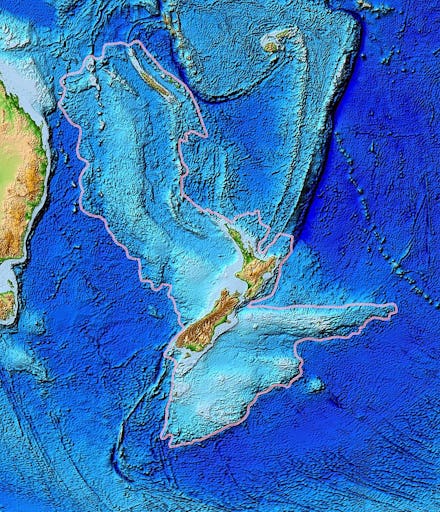Scientists just set out on an old-school voyage to understand a possible eighth continent

Long ago, explorers and colonizers set sail across the ocean to learn more about distant lands. But despite their meticulous notes, there’s more discovery to be had — a team of scientist just headed out on a two-month expedition at sea on July 27 to study what could be the world’s eighth continent.
Zealandia, a landmass estimated to be around half to two thirds the size of its neighbor, Australia, remains about 94% below the ocean’s surface. Researchers have been studying it for about 20 years — since its name was first proposed in a 1995 white paper — but it’s still contested whether or not the landmass should be considered its own continent. Technically, there’s no official body that awards landmasses the grand title of “continent,” but some scientists argue that it should be classified as one because of its distinct geology, thick crust and other factors.
“Its isolation from Australia and large area support its definition as a continent,” a team of scientists wrote in a 2017 paper. “The identification of Zealandia as a geological continent, rather than a collection of continental islands, fragments and slices, more correctly represents the geology of this part of Earth.”
Zealandia is special because it appears to have stayed intact as one giant landmass — somehow, it has avoided breaking down into a collection of separated islands. Currently, scientists think its underwater parts may have parted from Australia and sunk around 60 to 85 million years ago, according to the Telegraph.
To understand more of its history, researchers will drill into the possible continent’s sea floors, where they can collect fossil evidence. But until they find out more, plan on limiting your answer to “seven continents” in the next trivia bowl.